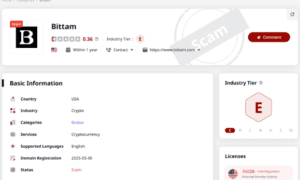Real estate investing is a popular way to generate passive income and build wealth, but it can be difficult for individual investors to find and evaluate opportunities. In recent years, online platforms like CrowdStreet and EquityMultiple have emerged as a way for investors to access a wide range of real estate investment opportunities with the convenience and transparency of an online marketplace. But what are the key differences between these two platforms and which one is right for you?
What is CrowdStreet?
CrowdStreet is a real estate investment platform that connects accredited investors with commercial real estate opportunities. The platform offers a variety of investment types, including direct investments in properties, funds, and REITs.
CrowdStreet’s platform is focused on commercial real estate, which includes office buildings, retail centers, industrial properties, and other types of income-producing properties. The platform’s offerings include both debt and equity investments, and investors can choose to invest in individual properties or diversify their portfolio by investing in a fund.
What is EquityMultiple?
EquityMultiple is an online platform that connects accredited investors with institutional-quality commercial real estate investment opportunities. The company focuses on providing its investors access to income-producing commercial properties, including multifamily, retail, office, industrial and healthcare properties.
Unlike CrowdStreet, EquityMultiple is focused on offering equity investments only. This means that investors are buying a stake in the property and will share in the profits, rather than receiving interest payments as with debt investments.
Investment Minimums
One of the key differences between CrowdStreet and EquityMultiple is their investment minimums. CrowdStreet has a $25,000 minimum investment, whereas EquityMultiple requires a $5,000 minimum investment. Click here to check out CrowdStreet today.
This makes EquityMultiple a better option for smaller investors who may not have $25,000 to invest in a single commercial property. However, it’s important to note that this lower minimum investment also means that you’ll be sharing the profits of the property with more investors, which could dilute your return.
Investment Types
As mentioned earlier, CrowdStreet offers a variety of investment types, including direct investments in properties, funds, and REITs, whereas EquityMultiple focuses on offering equity investments only.
CrowdStreet’s platform is focused on commercial real estate, whereas EquityMultiple’s platform is focused on institutional-quality commercial real estate investment opportunities. This means that CrowdStreet’s offerings include both debt and equity investments, and investors can choose to invest in individual properties or diversify their portfolio by investing in a fund.
On the other hand, EquityMultiple’s platform is more limited in terms of investment types, but it does offer more access to institutional-quality properties which may be less risky than investing in individual properties.
Due Diligence
Both CrowdStreet and EquityMultiple are careful to vet the properties they list on their platforms and provide detailed due diligence reports on each opportunity.
CrowdStreet’s due diligence process includes a thorough review of the property, the sponsor, and the market. The company also conducts an independent third-party appraisal of each property. Additionally, CrowdStreet’s offerings are reviewed by their in-house investment committee which is composed of experienced real estate professionals.
EquityMultiple also has a rigorous due diligence process which includes a thorough review of the property, the sponsor, and the market. They also conduct an independent third-party appraisal of each property and review the offering with their in-house investment committee.
Fees
Both CrowdStreet and EquityMultiple charge a fee to investors for using their platform. CrowdStreet charges a 1% – 2% annual management fee and may also include additional fees paid to the builders, developers, or sponsors. EquityMultiple also charges a fee to investors, but the fee structure is slightly different. They charge a 1.5% annual management fee, but they do not charge any additional fees such as acquisition fees or disposition fees. It’s important to note that the properties listed on EquityMultiple’s platform may also have additional fees such as closing costs or loan origination fees.
Investment Returns
Both CrowdStreet and EquityMultiple aim to provide investors with strong returns on their investments. The potential returns will vary depending on the specific property or fund that you invest in, but both platforms have a track record of providing solid returns to their investors.
CrowdStreet’s returns have varied depending on the investment type and the property, but the company claims that the average internal rate of return (IRR) for their offerings is between 12% and 20%.
EquityMultiple’s returns have also varied depending on the property and the investment type, but the company claims that the average IRR for their offerings is between 8% and 12%.
Conclusion
CrowdStreet and EquityMultiple are both reputable and reliable platforms that connect accredited investors with commercial real estate investment opportunities. While both platforms offer a variety of investment types and strong returns, there are some key differences to consider when choosing which platform to use.
CrowdStreet has a higher investment minimum and offers a wider variety of investment types, including both debt and equity investments. EquityMultiple has a lower investment minimum and focuses on offering equity investments only. Additionally, EquityMultiple has more access to institutional-quality properties which may be less risky.
Ultimately, the best platform for you will depend on your investment goals, budget, and risk tolerance. Both CrowdStreet and EquityMultiple are great options for investors looking to diversify their portfolios and generate passive income through commercial real estate investments. It is important to review the offerings, the fees, and the due diligence process of both platforms before making a decision. Click here to check out EquityMultiple.



































